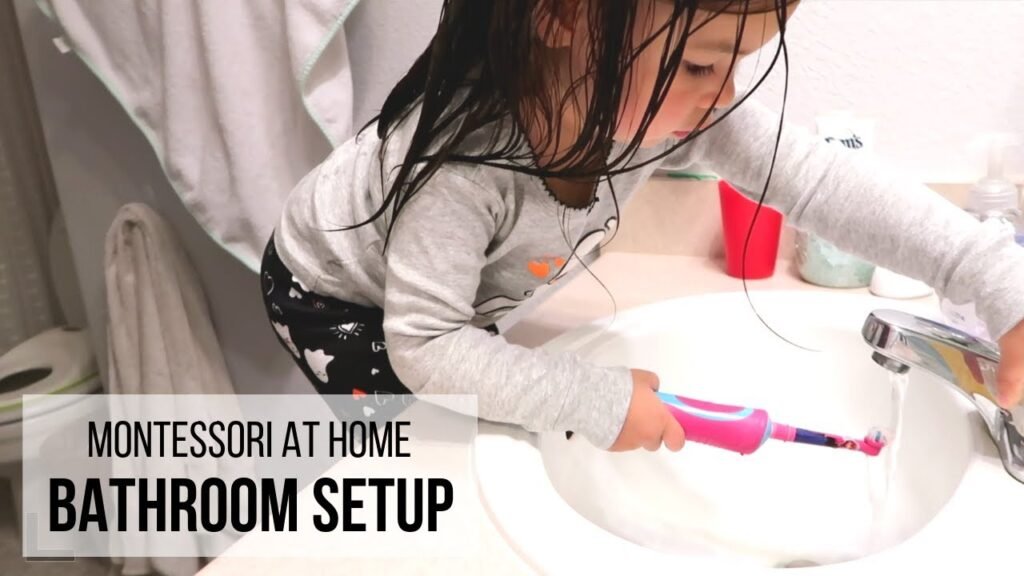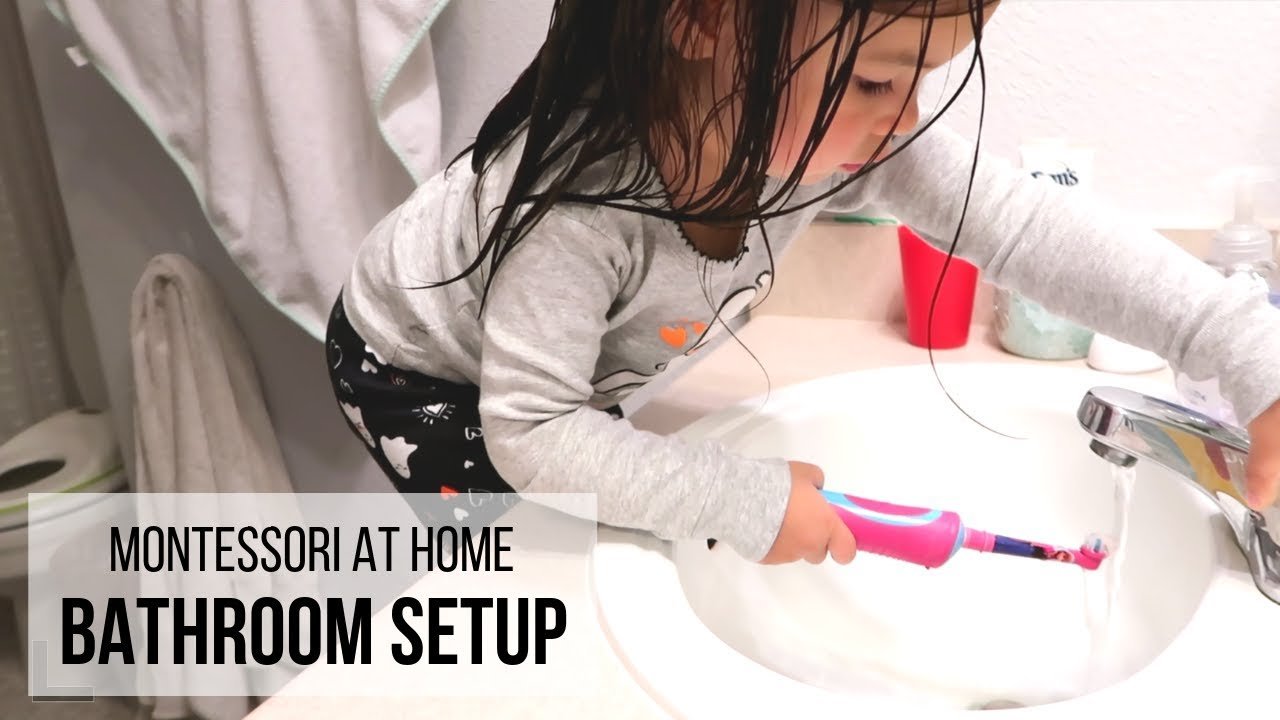Hi there! Today, I’m here to guide you through setting up your toddler’s bathroom for independence, following Montessori principles. By providing accessible tools like a sturdy step stool and child-friendly toothbrush, you can empower your little one to participate in self-care activities like brushing teeth and washing hands. Organizing bath time essentials, medicines and supplies in reachable cabinets will not only foster independence but also make the space welcoming for your toddler to explore safely.
As a parent of two young girls myself, I understand the importance of creating a functional Montessori bathroom setup. By involving your child in care of self activities, you are setting the stage for them to develop independence and confidence. From setting up a step stool for reaching the sink to organizing bath toys and towels, every detail in the bathroom can contribute to your toddler’s self-sufficiency. So take a cue from the Montessori at Home video by Hapa Family and start preparing your toddler’s bathroom for a journey towards independence and self-care!
Benefits of Montessori Toddler Bathroom Setup
Montessori toddler bathroom setup has numerous benefits for young children. It promotes independence by empowering them to accomplish self-care activities on their own. By participating in tasks like brushing their teeth, washing their hands, and getting dressed, children develop a sense of responsibility and autonomy. This setup fosters the development of fine motor skills, enabling children to improve coordination and dexterity in a practical environment.
Essential Elements for a Montessori Toddler Bathroom
-
Accessible tools and supplies: Ensure that children can easily reach all necessary items like toothbrushes, towels, and toiletries.
-
Child-sized furniture and fixtures: Provide furniture and fixtures adapted to a child’s height and reach, such as step stools and low-hanging towel hooks.
-
Safety features: Implement safety measures like non-slip mats, faucet covers, and child-proofed cabinets to reduce potential risks in the bathroom.
-
Organizational systems: Use labeled bins, drawers, and shelves to keep supplies organized and easily accessible for children.
Tools and Equipment for Independent Use
-
Step stool: Allows children to access sink and counter height comfortably.
-
Child-friendly toothbrush and toothpaste: Provide dental hygiene tools suitable for children’s use.
-
Towels, bath toys, shampoo, and other toiletries: Include these items at a child’s level for easy access during self-care routines.
-
Child-sized bath mat: Enhances safety and comfort during bathing times.

Bathroom Organization Tips
-
Use labeled bins or drawers for easy access to supplies and encourage children to clean up after themselves.
-
Store items at the child’s eye level to enable self-reliance and independence in managing their toiletries.
-
Rotate toys and supplies regularly to maintain children’s interest in self-care activities.
-
Keep cabinets and drawers child-proofed to prevent accidents and ensure a safe environment for children.
Creating a Child-Friendly Environment
-
Non-slip mats: Use mats in the tub and on the floor to prevent slips and falls during bath time.
-
Faucet covers: Install covers to prevent burns from hot water and make the taps child-safe.
-
Sturdy step stool: Provide a safe and stable stool for children to use when reaching higher surfaces.
-
Child-friendly decorations: Add colorful and inviting decor to make the bathroom space appealing to children.
Encouraging Independence in Self-care Activities
-
Modeling proper hygiene routines: Demonstrate the correct way to perform self-care tasks like brushing teeth and washing hands.
-
Allowing choices: Let children make choices in their self-care activities to encourage engagement and decision-making.
-
Praising efforts: Acknowledge and praise children’s efforts and progress in completing self-care tasks to boost confidence and motivation.
-
Encouraging accomplishment: Help children feel a sense of accomplishment and pride in taking care of themselves independently.
Managing Water Play in the Sink
-
Supervise child: Monitor children during water play to ensure safety and prevent accidents.
-
Set limits on water usage: Establish guidelines for water play to prevent wastage and maintain a tidy bathroom.
-
Provide child-safe toys: Offer toys designed for water play to keep children engaged and entertained during bath time.
-
Teach cleaning up: Instruct children on cleaning up after water play to instill good habits and responsibility.
Safety Precautions in the Bathroom
-
Child-proofing: Secure cabinets and drawers to prevent children from accessing harmful substances or objects.
-
Non-slip mats: Use mats in the tub and on the floor to prevent falls and ensure a safe bathing environment.
-
Faucet covers: Install covers to protect children from accidental burns caused by hot water.
-
Secure storage: Keep medicines and cleaning supplies out of reach of children to prevent ingestion or accidents.
Encouraging Independence Through Routine
-
Establishing a consistent routine: Create a daily schedule that includes bathroom time to help children form habits and expectations.
-
Encouraging proactivity: Motivate children to take the lead in their self-care activities by providing them with the tools and guidance they need.
-
Incorporating bathroom time: Integrate bathroom activities into children’s daily routines to make them feel comfortable and familiar with self-care tasks.
-
Allowing child-led activities: Let children take charge of their bathroom routines to develop confidence and independence in their self-care skills.
Conclusion
In conclusion, a well-planned Montessori toddler bathroom setup can have a significant impact on a child’s development. By fostering independence, promoting self-confidence, and encouraging responsibility, parents can create a space where children can thrive and learn essential life skills. Through accessibility, safety, and organization, children can engage in self-care activities with autonomy and pride, leading to a sense of accomplishment and empowerment. Embracing Montessori principles in the bathroom provides a nurturing environment for children to grow and flourish in their journey towards independence and self-sufficiency.

